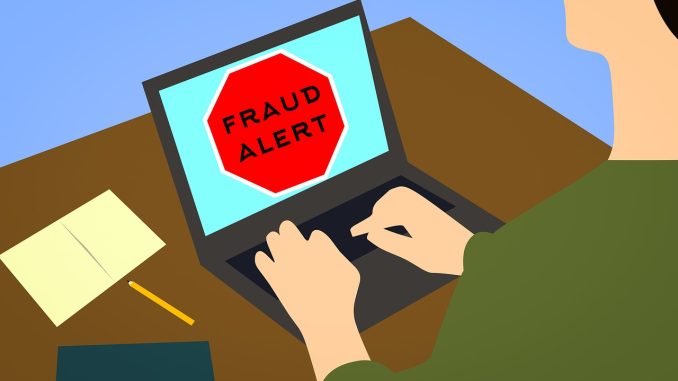
In the scramble to migrate to the US, many people have fallen prey to Fraud more and more dishonest people sending fake emails and letters to people applying for the Diversity Visa (DV) program.
I know how devastating this can be and I have brought news from the Federal Trade Commission (FTC) to warn you so that you can thread circumspectly.
Fraudulent Emails and Letters
There are some really bad people out there who are trying to cheat people who want to apply for the Diversity Visa (DV) program.

They want to make you think they’re official and get you to give them money.
But you need to know something important:
The U.S. government will never send you a letter or email saying you’ve been chosen as a DV entrant.
The only way to find out if you’ve been selected is by checking the DV Entrant Status Check online at https://dvprogram.state.gov. Please be careful and don’t fall for these tricks.
Information for DV Program Applicants
If you’re thinking of applying for the Diversity Visa (DV) program, I want to help you do it the right way. Here’s what you need to know:
- Read and follow the instructions on the Diversity Visa Program page on travel.state.gov. It’s important to understand what you need to do so you don’t get scammed or disqualified.
- When you fill out the application form, be honest and give accurate information. Don’t make up things or use fake documents. If you do, you might not be able to enter the United States.
If you need help, make sure the person assisting you is using your real information.
If someone helps you with your application, make sure they give you the entry confirmation number.
If you don’t have an email account, you can create a free one on a computer or smartphone.
Only submit one application per eligible person. If you send more than one, you won’t be considered.
Also, make sure your photo is recent. If it’s older than six months, it won’t be accepted.
How to Avoid Being Scammed
I want to help you protect yourself from fraud and scams during the Diversity Visa (DV) application process. Here are some tips to keep in mind:
- Be careful when sharing your personal information or making payments. The U.S. government will never ask you to pay in advance by check, money order, or wire transfer. If you have to pay any fees, do it at the U.S. Embassy or consulate cashier during your scheduled appointment.
- Stay away from unauthorized visa consultants who promise to improve your chances of winning. They can’t help you, and they’re just trying to get your money.
- Make sure you keep track of your application status and don’t rely on others. Use the official DV Entrant Status Check at https://dvprogram.state.gov to find out if you’ve been selected.
- Stay alert and report any suspicious activity or if someone tries to pressure you into adding people who aren’t your legal family members to your application. Let the Consular Officer know about it during your interview.
How to Identify Official U.S. Government Websites and Emails
It’s important to know which websites and emails are from the real U.S. government. Here are some things to look out for:
- Official government websites end with “.gov” in their web address. For example, U.S. Embassy and Consulate websites are found at http://www.usembassy.gov/. The Department of State’s Consular Affairs travel website is http://travel.state.gov.
- Visa information on official U.S. government websites with “.gov” addresses is correct and trustworthy. Be careful with websites and emails that don’t end with “.gov” because they might be fake.
- Genuine U.S. government email addresses also end with “.gov.” If you get emails about visas from addresses that don’t end with “.gov,” be cautious because they might not be real.
Legit Sources of Immigration and Visa Information
When you want information about immigration and visas, it’s important to go to the right places. Here are some official sources you can trust:
- U.S. Embassy and Consulate websites are a good place to find information. You can visit http://www.usembassy.gov/ to access them.
- The Department of State’s Consular Affairs travel website at http://travel.state.gov has a lot of helpful information about visas and other consular services.
- If you want to know about the Diversity Visa Program, visit the official website at https://dvprogram.state.gov. They have all the details and instructions you need.
- You can also find reliable information on the websites of the Department of Homeland Security (DHS) at http://www.dhs.gov, U.S. Citizenship and Immigration Services (USCIS) at http://www.uscis.gov, U.S. Customs and Border Protection (CBP) at http://www.cbp.gov, Immigration and Customs Enforcement (ICE) at http://www.ice.gov, and the Department of Labor at http://www.doleta.gov.
Recognizing Fraudulent Websites and Emails
Some websites and emails are trying to trick people into thinking they’re official, but they’re not. Here’s how to spot them:
- Pay attention to the website address (URL). Fraudulent websites may look like official ones but won’t have the “.gov” at the end, which means they’re not real.
- Be careful if you see websites or emails with pictures of things like the U.S. flag, U.S. Capitol, White House, or Statue of Liberty, but they don’t have the “.gov” in their address. That’s a sign they might be fake.
- Remember, official U.S. government websites and emails always end with “.gov.” If the address or email doesn’t end with “.gov,” it might not be trustworthy.
FAQs
How can I tell if a website or email is really from the U.S. government?
Legitimate government websites have web addresses ending in “.gov.” You can visit official U.S. embassy and consulate websites at http://www.usembassy.gov/. Visa information on official U.S. government websites ending in “.gov” is trustworthy. Official government email addresses also end in “.gov.” Be suspicious of visa-related correspondence from addresses that don’t have this suffix.
Can I trust immigration information on other websites?
Some non-governmental websites provide legitimate and helpful immigration and visa-related information. However, it’s important to verify the information from official U.S. government sources. Non-governmental websites with addresses ending in “.com,” “.org,” or “.net” may not have accurate or up-to-date information.
Conclusion
Fraudulent organizations may try to charge you for immigration and visa services, but these payments won’t go to the U.S. government and won’t help with your visa processing.
They might offer services they cannot deliver, such as guaranteed visas or “green cards” in exchange for a large fee.
These services can only be obtained through official U.S. government entities.
Additionally, be cautious about sharing personal information with fraudulent websites and emails, as it can lead to identity fraud or theft.